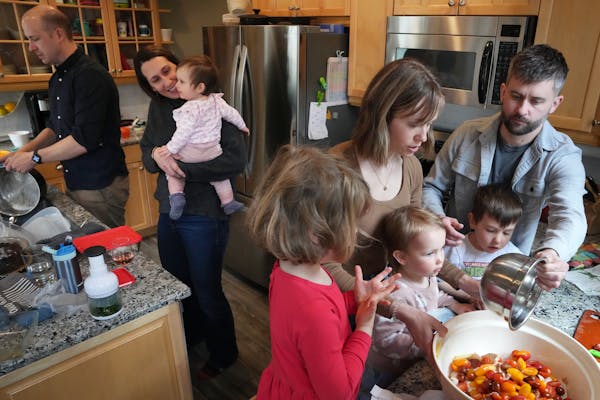Disability advocates and insurance experts are raising some last-minute concerns with a proposed overhaul to the city's transportation ordinances.
The City Council is slated to vote Friday on a package of changes that would legalize services like Lyft and UberX while relaxing regulations on taxi companies.
In a letter to the council, two disability groups asked for the vote to be delayed after learning that one cab company was no longer planning to participate in a new wheelchair-accessible incentive program.
At issue is the elimination of a requirement that cabs posses a certain percentage of wheelchair-accessible cabs. Companies never complied with the mandate, so the new rules would convert it into a surcharge to help fund a fleet of accessible cabs.
Though it appeared that Green and White Taxi and Airport Taxi were going to participate in the program, the Minnesota State Council on Disability and the Minneapolis Advisory Committee on People with Disabilities learned that they were Airport Taxi was changing their minds.
"We recommend that you establish a face to face summit with all the key stakeholders so that an agreement can be negotiated in a public forum," the groups said in a joint letter.
A separate letter from the Insurance Federation of Minnesota, a trade group, said that the companies -- rather than drivers -- should bear the burden of ensuring that Lyft and UberX drivers are covered by insurance during the period when they are logged into the app, but not engaged in a ride.
UPDATE: In response to a similar question from the state's insurance commissioner, business licensing manager Grant Wilson said he intends to perform audits to ensure the insurance provisions are being followed.
They also expressed concerns that the insurance requirements are lower when the drivers are logged into the app, but not in the middle of a ride. Finally, they said the ordinance should address uninsured and under-insured coverages.
The sponsor of the ordinance, Jacob Frey, said they are still on track for a final vote on Friday morning. He does not plan to offer any substantial amendments.
"This is the latest in a long line of attempts to stop the progress of this ordinance and the legalization of the ridesharing companies," Frey said. "And I'm not tolerating it."
Regarding the wheelchair accessibility question in particular, he said that multiple entities have expressed an interest in the incentive program. But firm commitments can't be obtained until the city issues a request for proposals, he said.
Below is the letter from the disability advocates. A section of the insurance letter is at the bottom of this post.
Minnesota state council on Disability
Insurance letter selection:
Overall, the current language is well done and has properly focused on making sure there are no insurance coverage gaps in order to be licensed as a TNC. However, there are some problematic provisions for which clarity/clean-up would be beneficial.
First, we believe the burden should be on the TNC network provider to make certain that there exists a commercial policy applicable to the TNC driver for the entire app-on/app-off period, and not just the "prearranged ride" period. As drafted now, the TNC network provider must file evidence of commercial insurance for the " prearranged ride" period, while the " app-on waiting for a match" period requires either the TNC network provider or the TNC driver to produce evidence of coverage.
Second, we think there is a genuine public policy issue of having the lower 50/100/30 liability coverage amounts for the " app-on waiting for a match" period. Dropping the required ( and appropriate) coverage from $1million for prearranged rides to the lower limits would apply where a driver has the app-on but decides to do personal errands ( e.g. picking children up from school) and an accident occurs. This latter situation will run into the broad livery exclusion in personal auto policies.
Third, the ordinance doesn't cover or refer to uninsured ( UM)/underinsured ( UIM) coverages or to the availability of the voluntary physical coverages in the TNC policies. The UM/UIM coverages should follow the policy providing the liability coverage. State law will control the interpretation of statutes requiring specific types of coverage( PIP, UM,UIM). We believe there could be litigation in the PIP area since the ordinance requires evidence of the minimum PIP required by state law, but many consumers choose to buy higher limits of PIP coverage. Also, we don't think that Minneapolis has jurisdiction over how coverage would be divided if there were more than one policy applicable to an accident, as provided in 343.70(g).
In heated western Minn. GOP congressional primary, outsiders challenging incumbent

Minnesota Sports Hall of Fame: A class-by-class list of all members

This retired journalist changed professional wrestling from Mankato

